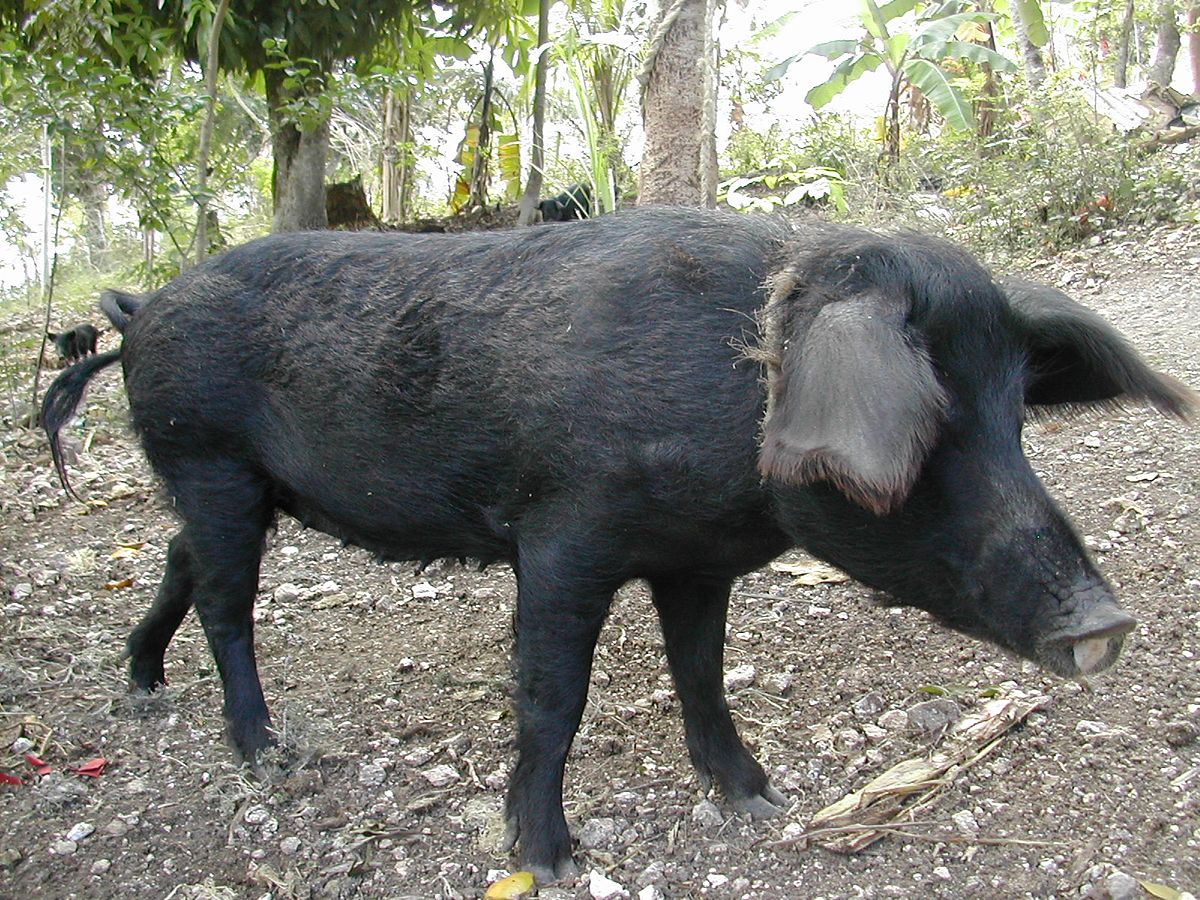Historical Context
The Creole pig is deeply embedded in Haitian culture. Historically, these pigs were more than just livestock; they served as a form of savings for peasant families.
- Economic Role: Sold or slaughtered to cover expenses like education, medical emergencies, and celebrations.
- Cultural Significance: Featured in Vodou rituals and local folklore, symbolizing prosperity and community.
In the early 1980s, a drastic eradication campaign led by the U.S. and Canadian governments aimed to eliminate these pigs due to fears of African Swine Fever. This initiative resulted in the slaughter of approximately 1.3 million pigs, devastating the local economy and disrupting traditional farming practices
The Impact of Eradication
The consequences of the eradication campaign were profound:
- Economic Hardship: Many families lost their primary source of income, leading to increased poverty and reduced school enrollment.
- Environmental Damage: Farmers turned to charcoal production, contributing to deforestation as they sought alternative income sources.
As one farmer lamented, “The pig was our bank; without it, we lost our savings and our way of life.”
Efforts for Restoration
- Breeding Programs: Agronomists are working to breed a new variety that mirrors the original Creole pig’s hardiness.
- Community Involvement: Local farmers are engaged in repopulation efforts, recognizing the importance of this breed for food security and economic stability.
Jean-Baptiste Chavannes, a leader in these initiatives, emphasizes that “restoring the Creole pig is about reclaiming our identity and ensuring food sovereignty.”
Regional Variations
Haiti’s diverse geography means that adaptations exist within pig farming practices:
- Feeding Practices: Some farmers utilize local crops and kitchen scraps to feed their pigs, reflecting sustainable practices.
- Cultural Celebrations: In different regions, pigs play varying roles in festivals and family gatherings, showcasing local traditions.
Actionable Takeaways
- Support Local Farmers: Consider purchasing pork from local farms that raise Creole pigs or similar breeds.
- Advocate for Heritage Breeds: Engage with organizations focused on preserving indigenous livestock breeds to promote biodiversity.
Engage With Us
What are your thoughts on preserving indigenous breeds like the Cochon Creole? Have you experienced the cultural significance of livestock in your community? Share your insights in the comments below!












Add a comment